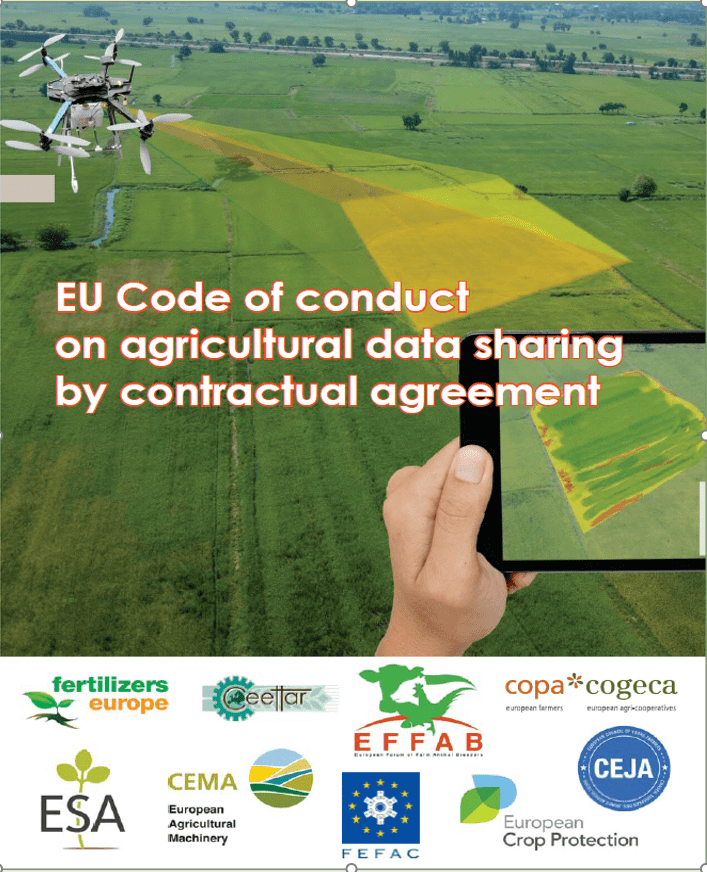The European code of conduct for data sharing in agriculture
What is this code of conduct?
As farmer or grower, you invest in technology and digital advisory tools. In order to get the most out of those tools, they must have access to your farm-specific, high-quality, up-to-date data. Without granting such access, you would have to manually enter the same data over and over again. Based on your agricultural data, new smart applications can also be built. But again, companies need access to your data first. Farmers and companies see the benefits of sharing data, but they demand clarity, transparency and respect for the owner of the data.
To this end, in early 2018, on the initiative of Copa-Cogeca and CEMA, among others, a European Code of Conduct was established with guidelines around transparent data sharing. The most important article in this code is about how signatories unambiguously recognize the farmer as the owner of the raw data when the farmer collects it or has it collected. But what does this mean specifically?

-
The conditions under which data is collected and shared on and about the farm must be clearly defined in a contract;
-
The sharing of agricultural data is only possible after explicit permission from the producer of the data (data owner);
-
The farmer, as data owner, must be correctly informed about what data is involved, for what purpose it is shared, and what the benefits are of making the data available. This is called informed consent.
This EU Code of Conduct, which has been signed by Copa-Cogeca, CEMA, Fertilizers Europe, CEETTAR, CEJA, ECPA, EFFAB, FEFAC and ESA, among others, puts transparency first by contractually establishing the rights and obligations of all chain partners. The aim is to create the necessary trust between all these partners.
The Code of Conduct applied in DjustConnect
The Code of Conduct is a good first step towards transparency and trust. However, because it is a “code of conduct”, the suggestions are purely voluntary. The conditions surrounding data sharing can be written up in a contract, but in practice this often means a multiplicity of complex, unclear contracts. Keeping track of all these contracts becomes a digital archive in itself.
DjustConnect also offers a solution here:
-
There is only one central digital contract that clearly defines the rules of the game;
- The technical infrastructure ensures that data can only be shared after explicit consent and under the conditions specified in the data request.
Sharing data via DjustConnect is therefore 100% in accordance with this Code of Conduct. This way, as a user, you don't have to go through the checklist from the Code of Conduct every time.
What about GDPR?
The Code of Conduct mainly focuses on the sharing of non-personal data. However, if data is linked to a person who is identifiable through a contract, land registry, coordinates, etc., it is considered personal data and is subject to the General Data Protection Regulation (GDPR).
The central DjustConnect contract
DjustConnect is 100% transparent about how it handles your data itself, whether the data is personal or not. You can find more explanations about this in the user agreement and the privacy statement. This video summarizes the most important aspects of the contract.